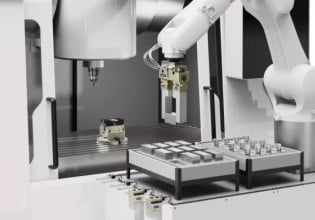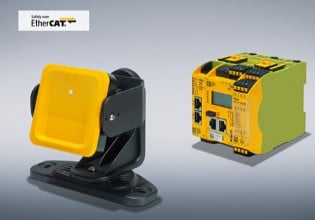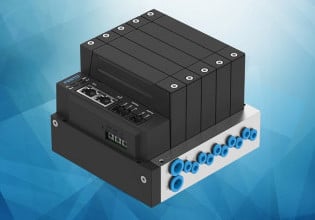B
Bob,
I agree wholeheartedly that your comments reflect the way things OUGHT to be done. But in reality? When I had a bunch of stray earth faults on an
instrument wiring system because someone took a well-hidden short cut during construction - it's much cheaper to pull in a bunch of sparkies and
let them loose on instrument wiring - after all, it's all copper connections - I found it VERY difficult to persuade management that we
should go over every termination in the plant and make sure they were properly insulated at the field end. We did in the end get it done, but it
was a couple of years down the track and a number of faults later. At one power plant I worked on , very early in my carrier, the machanical overseer
told me he knew there were probably another 20 bad welds in the boiler economiser piping, but the easiest way to find them was to wait till they
started to leak.
With contract labour replacing permanent staff, the down side is that it does take time to learn to find your way around the plant - and also the
documentation system. I have worked on a number of plants, and there was very little consistency between them when it came to drawing numbering,
cross-referencing, requirements for documenting. I was involved with a project on a plant owned by a well-known US-based multinational where the
wiring diagrams and schematics for 11 kV switchgear were basically unreadable - they were held on glass-plate negatives and had been knocking around loose in a drawer for 25 years.
Many plants have survived in spite of inadequate efforts being put into plant documentation, etc, because of the "institutional memory". Failure to
recruit new staff so that they can pick up the dodges from the old guys before they retire is a problem that is starting to bite in this part of
the world. (And in the plant referred to above, the only guy who had had any experience in working on the 220V DC powered 11 kV switchgear was in his 70s and came out of retirement to do any maintenance. The project slipped by about 4 months because his appointment for a hip replacement came up at the time when we wanted tohe mods to the switchgear done.) (You think I'm kidding, don't you? I'm not!).
These are areas where there is management failure - but the people at the work face are the ones who get balmed if the plant is down from a week because it took them that long to find a faulty connection.
On 15 May, 2001 02:59, [email protected] [SMTP:[email protected]] wrote:
>(snip)
>
> If they were updating the records properly, the jbox would not be hidden,
> would it? Part of the problem with relying on these guys is that they
> eventually retire and their store of useful knowledge goes with them.
> Better to spend the time and money to update and correct drawings,
> collect and centralize manuals, and regularize the maint plan rather
> then rely on people who will be gone soon. I don't know how many times
> the manual that I needed to debug something did not exist at the central
> maint crib because someone had it in his private stash somewhere. Or a
> control panel wiring had been modified but the drawings never updated.
>
> And quite frankly, my theory about "funny faults" as you called them, is
> that once they are detected, they need to be fixed properly so it does
> not happen again. Just getting by is not the answer. If the same thing
> happens 2 or 3 years down the road its a failure that was avoidable, as
> it should have been fixed properly the first time. If a problem is
> detected and not fixed so it won't happen again, thats just plain
> unacceptable in my book.
I agree wholeheartedly that your comments reflect the way things OUGHT to be done. But in reality? When I had a bunch of stray earth faults on an
instrument wiring system because someone took a well-hidden short cut during construction - it's much cheaper to pull in a bunch of sparkies and
let them loose on instrument wiring - after all, it's all copper connections - I found it VERY difficult to persuade management that we
should go over every termination in the plant and make sure they were properly insulated at the field end. We did in the end get it done, but it
was a couple of years down the track and a number of faults later. At one power plant I worked on , very early in my carrier, the machanical overseer
told me he knew there were probably another 20 bad welds in the boiler economiser piping, but the easiest way to find them was to wait till they
started to leak.
With contract labour replacing permanent staff, the down side is that it does take time to learn to find your way around the plant - and also the
documentation system. I have worked on a number of plants, and there was very little consistency between them when it came to drawing numbering,
cross-referencing, requirements for documenting. I was involved with a project on a plant owned by a well-known US-based multinational where the
wiring diagrams and schematics for 11 kV switchgear were basically unreadable - they were held on glass-plate negatives and had been knocking around loose in a drawer for 25 years.
Many plants have survived in spite of inadequate efforts being put into plant documentation, etc, because of the "institutional memory". Failure to
recruit new staff so that they can pick up the dodges from the old guys before they retire is a problem that is starting to bite in this part of
the world. (And in the plant referred to above, the only guy who had had any experience in working on the 220V DC powered 11 kV switchgear was in his 70s and came out of retirement to do any maintenance. The project slipped by about 4 months because his appointment for a hip replacement came up at the time when we wanted tohe mods to the switchgear done.) (You think I'm kidding, don't you? I'm not!).
These are areas where there is management failure - but the people at the work face are the ones who get balmed if the plant is down from a week because it took them that long to find a faulty connection.
On 15 May, 2001 02:59, [email protected] [SMTP:[email protected]] wrote:
>(snip)
>
> If they were updating the records properly, the jbox would not be hidden,
> would it? Part of the problem with relying on these guys is that they
> eventually retire and their store of useful knowledge goes with them.
> Better to spend the time and money to update and correct drawings,
> collect and centralize manuals, and regularize the maint plan rather
> then rely on people who will be gone soon. I don't know how many times
> the manual that I needed to debug something did not exist at the central
> maint crib because someone had it in his private stash somewhere. Or a
> control panel wiring had been modified but the drawings never updated.
>
> And quite frankly, my theory about "funny faults" as you called them, is
> that once they are detected, they need to be fixed properly so it does
> not happen again. Just getting by is not the answer. If the same thing
> happens 2 or 3 years down the road its a failure that was avoidable, as
> it should have been fixed properly the first time. If a problem is
> detected and not fixed so it won't happen again, thats just plain
> unacceptable in my book.






